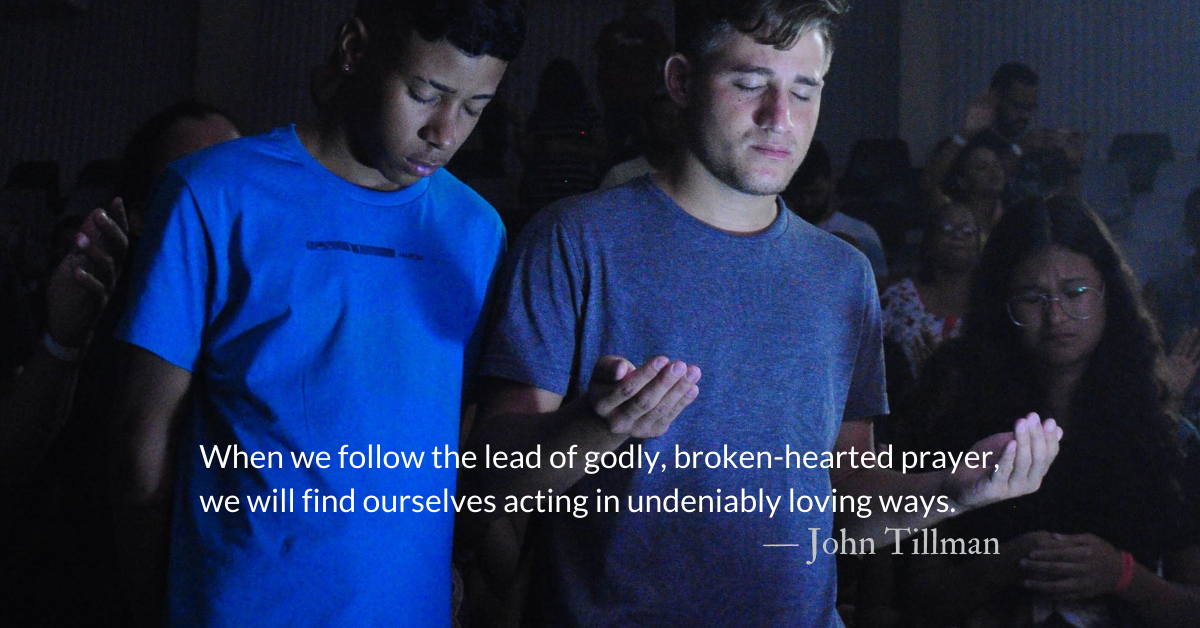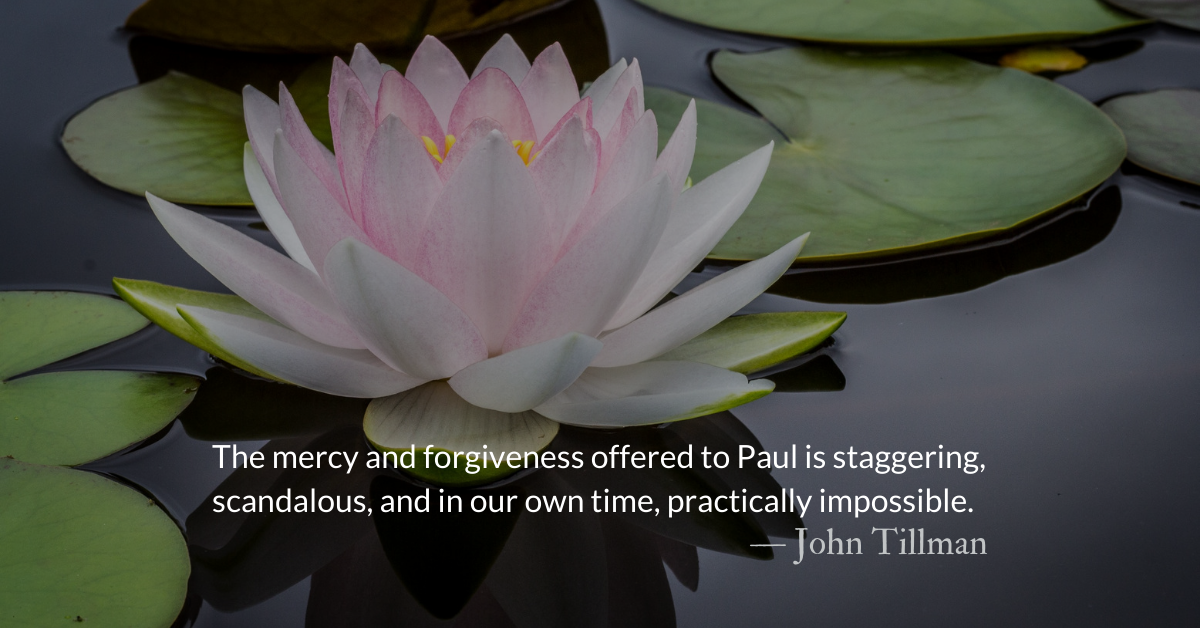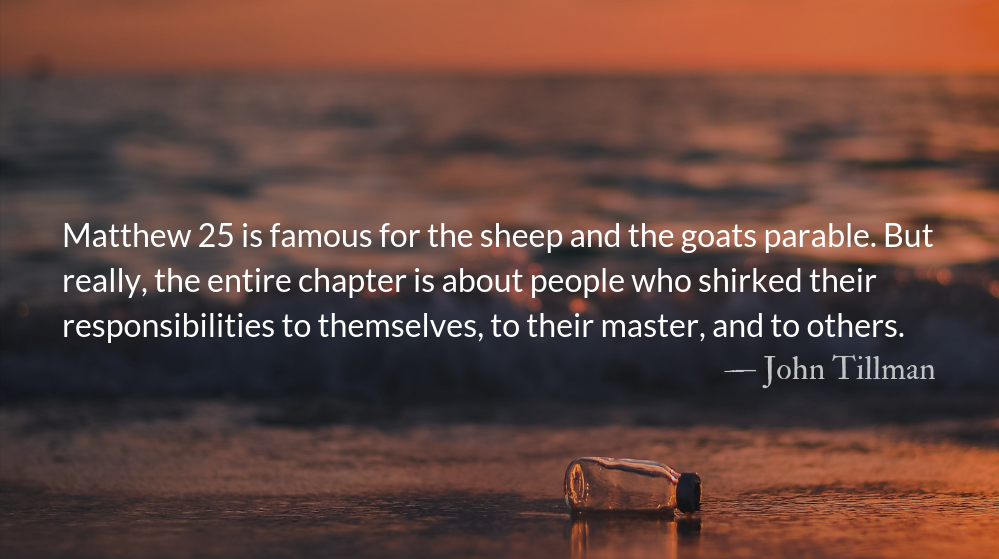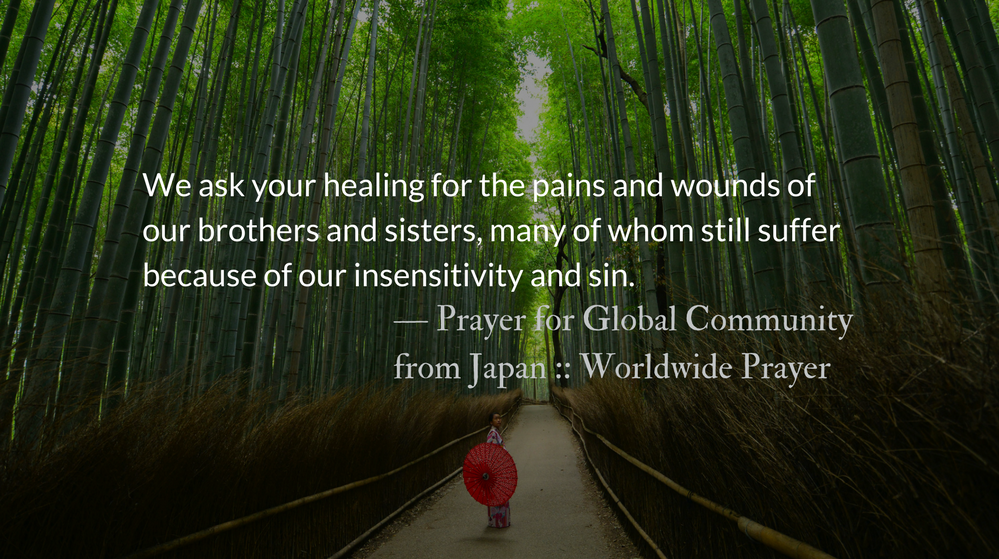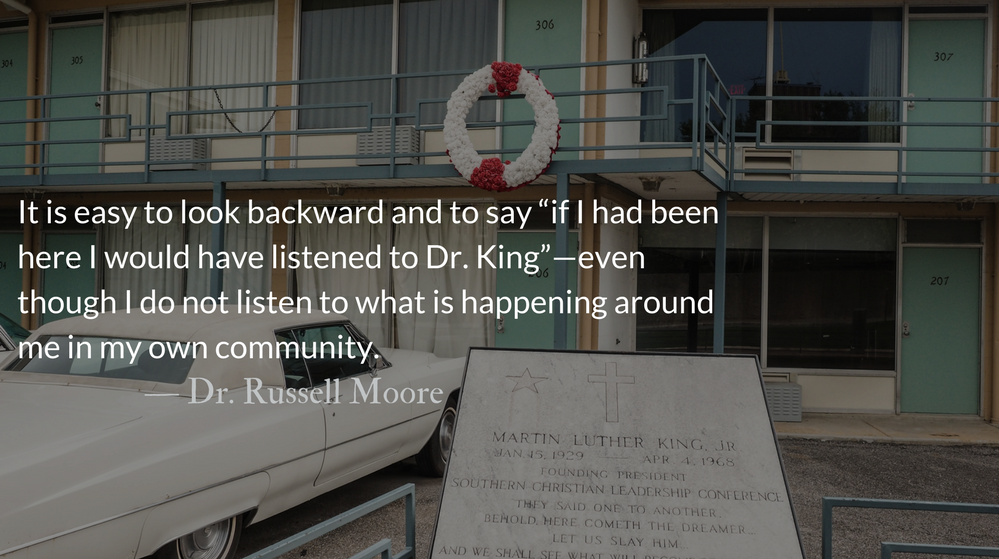Scripture Focus: 1 Timothy 2.1-2
I urge, then, first of all, that petitions, prayers, intercession and thanksgiving be made for all people—for kings and all those in authority, that we may live peaceful and quiet lives in all godliness and holiness.
Prayer is not a passive, calm, quiet practice. — Tim Keller
Reflection: Thoughts and Prayers
By John Tillman
In our world, there is now pushback against even saying that we will pray over a situation. Thoughts and prayers as a hashtag has become a philosophical battlefield where people of faith and people frustrated by people of faith clash about the efficacy of prayer and the pointlessness of faith without works. (The language is, of course, not that academic.)
This pushback is based on a cultural assumption about prayer and an assumption about those who say they will pray. The first is that prayer is pointless and can’t help any situation. The second is that those who say they will pray, will not actually pray, and worse than that, will not follow through with any actions at all.
The cultural version of this type of empty prayer is engaging in the equally empty gesture of clicktivism—liking or sharing a post about an issue, but doing nothing substantive to address it. In a way, those who are decrying thoughts and prayers are praying unknowingly—they are calling out, they know not to whom, for real, tangible change and action.
The culture Paul was in prayed a lot. Prayer was everywhere. But in no religion was it so personal and direct as in Christianity. The type of prayer that Paul practiced and taught confronted both modern and ancient cultural assumptions and was attractive, not repulsive, to his culture. How?
One reason we see is that the kind of prayer that Paul engages in is fruitful in creating action—good desires and the deeds that follow. Paul’s prayers were not just words, but will and work. According to Paul deeds are prompted by faith, and faith is fueled by prayer life.
It is our actions, growing directly from the cultivated soil of prayer, that bear fruit that our world will gladly partake of.
When we follow the lead of godly, broken-hearted prayer, we will find ourselves acting in undeniably loving ways (against which there is no law), seeking out the lost, marginalized, and broken with Christ’s love, and suddenly realizing that people are no longer repelled by our thoughts and our prayers.
Divine Hours Prayer: A Reading
Jesus was at a feast when: “He said to his host, ‘When you give a lunch or a dinner, do not invite your friends and brothers or your relations or rich neighbors, in case they invite you back and repay you. No; when you have a party, invite the poor, the crippled, the lame, the blind; then you will be blessed, for they have no means to repay you and so you will be repaid when the upright rise again.’” — Luke 14.12-14
– From The Divine Hours: Prayers for Autumn and Wintertime by Phyllis Tickle.
Today’s Readings
2 Kings 5 (Listen – 5:13)
1 Timothy 2 (Listen -3:17)
Thank You!
Thank you to our donors who support our readers by making it possible to continue The Park Forum devotionals. This year, The Park Forum audiences opened 200,000 emails with free, and ad-free, devotional content. Follow this link to join our donors with a one-time or a monthly gift.
Read more about Praying as Priests
May we pronounce this blessing not with words alone, but in how we live and walk through our world
20190429
Read more about Artful Prayers
In the psalms, we…enter the lived emotion of the artists who bared their souls to God in prayers that were always intended to be performed.

